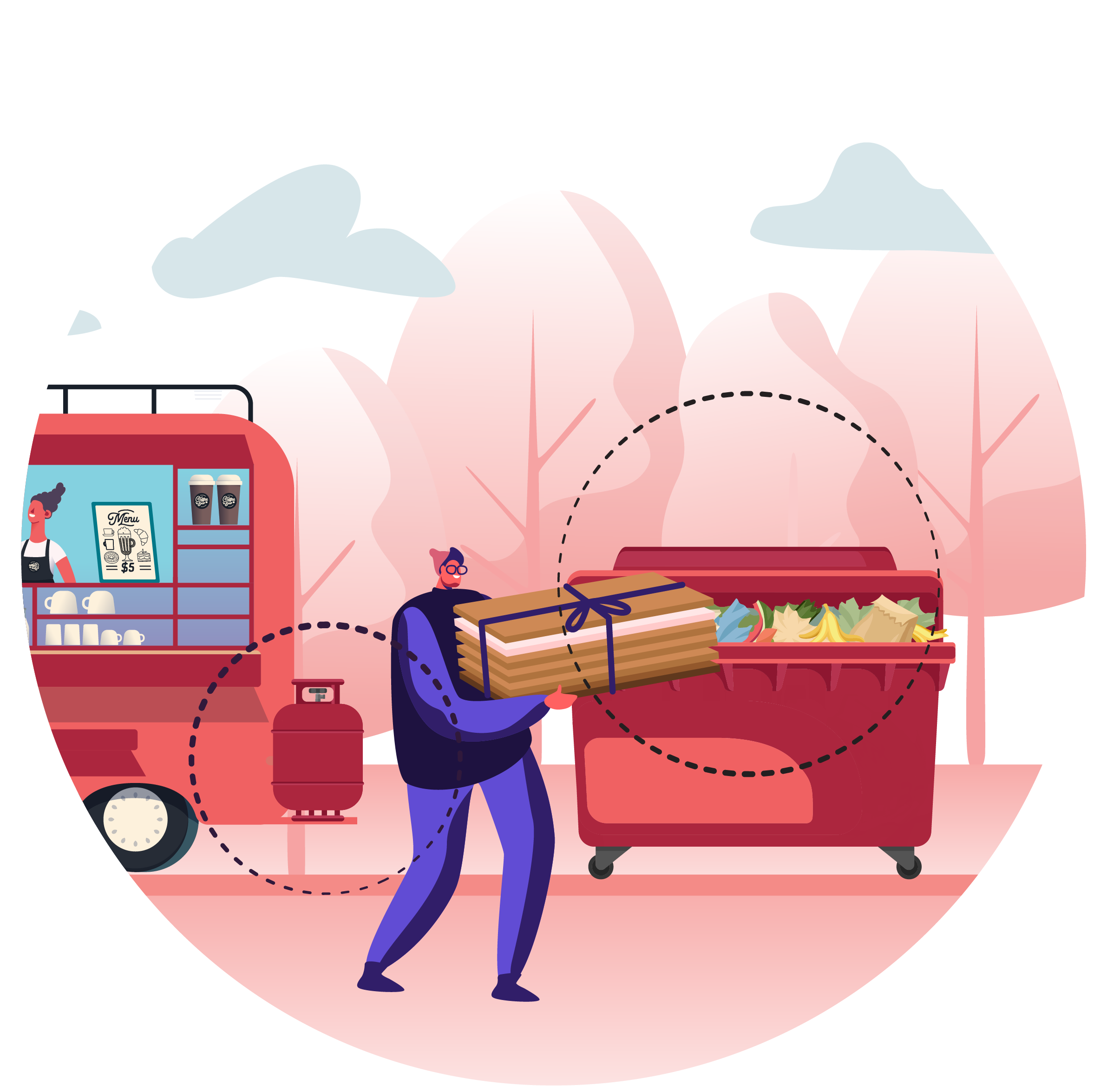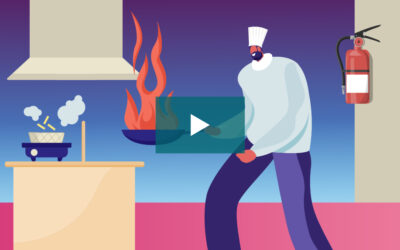Food trucks have become a popular way for entrepreneurs to get their businesses off the ground. But these mobile restaurants are at an increased risk of fire hazard, posing a serious threat to the health and safety of employees, customers, bystanders and nearby properties. Losses can be catastrophic when they occur — often resulting in high-cost lawsuits and devastating physical injuries.
Follow these five fire safety tips to ensure the safety of your food truck business.
1. Practice Propane Tank Safety
Did you know nearly 70% of food truck fires involve propane tanks? Avoid overfilling your tank, as doing so can cause tank cylinders to explode due to inadequate vapor space to allow liquid propane to expand in the cylinders as temperatures rise. By law, tank cylinders with a capacity for propane between 40 and 100 pounds should never be filled to more than 80% of the tank’s capacity.
Check for gas leakages and perform regular maintenance. Inspect hoses to ensure they aren’t overly worn and they don’t have holes/tears. Know the markings on your cylinder, which indicate the type of tank and its manufacture and recertification dates. Have tanks properly secured and stored on the truck’s exterior.
2. Have Proper Fire Extinguishing Equipment in Place
Within your truck, a fire suppression system should be installed by a licensed, insured contractor to cover all commercial cooking equipment. To properly function, this system needs to be professionally serviced on a semiannual basis. Keep an inspected, tagged Class K fire extinguisher within reach in your kitchen.
3. Install and Maintain a Proper Ventilation Exhaust System
Hood ventilation exhaust systems are designed to pull smoke and debris from a food truck’s interior and collect oil and grease that accumulate while cooking. Have your hood system professionally serviced on a quarterly basis to prevent grease buildup.
4. Adequately Train Your Staff
It’s critical you ensure all employees are trained in regularly required fire safety procedures, including:
- How to use portable fire extinguishers and extinguishing systems
- How to properly shut off fuel sources
- How to contact the local fire department
- How to perform a leak test on gas connections
- How to properly shut down propane systems and electrical power in case of emergency
- How to safely evacuate the food truck in the event of an emergency
Knowing these procedures will allow your staff to be better prepared should an incident occur.
5. Be Conscientious About the Storage of Flammables
Store flammable liquids (e.g., cleaning agents and gasoline) in tightly sealed containers as far away from heat and flame sources as possible, and store paper products (e.g., linens, boxes) away from heat and cooking sources. Properly dispose of trash — especially highly flammable content, like oil-soaked rags — at least once per day to prevent debris accumulation, which can contribute to fire spread.








